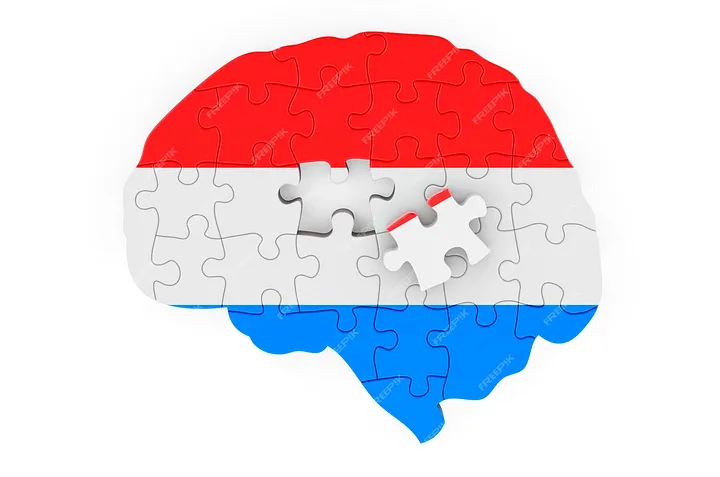
Autism in the Netherlands: Advocacy, Inclusion, and Challenges
Inclusion isn’t just about making space for others — it’s about building a society where everyone feels they belong.
Have you ever wondered how a country like the Netherlands supports individuals with autism? With a strong framework that includes advocacy, government assistance, and an ongoing effort to foster inclusion, the Netherlands is making considerable strides. Did you know that 1 in 82 people in the Netherlands are diagnosed with autism, amounting to 591.54 per 100,000 individuals?
In this article, we’ll dive into how the Netherlands manages autism, the key organizations involved, and what more can be done to make society truly inclusive. Ready to explore?
Autism in the Netherlands: Awareness and Prevalence
As in many developed nations, awareness of autism spectrum disorders (ASD) has been steadily increasing in the Netherlands. The rise in diagnoses is not a sudden epidemic — it’s about better detection and understanding of autism.
Do you know about the Nederlandse Vereniging voor Autisme (NVA)? It’s a key organization dedicated to increasing awareness of autism and providing support to individuals with autism and their families. Their mission? To create an inclusive society where everyone — regardless of their neurodiversity — can thrive in education, employment, and social activities. But despite progress, you might be surprised to learn that many societal attitudes still lag, and achieving full integration is a challenge.
What do you think could be done to further improve these perceptions?
Inclusivity and Social Integration: Dutch Values in Practice
The Netherlands prides itself on its inclusive values, and these extend to individuals with autism. From public spaces to schools and workplaces, the country is increasingly designing its environment to accommodate neurodiverse people. Nonetheless, even with these initiatives, there are still obstacles to achieving full inclusion.
Ever been to an autism-friendly public event? They’re becoming more common in the Netherlands, but discrimination and misunderstandings persist in some areas.
Changing these perceptions requires ongoing public education — what are your thoughts on how society could better address this?
Government Support and Financial Assistance for Autism
Do you know someone who benefits from government assistance due to autism?
If you’re residing in the Netherlands, the government provides significant assistance via the UWV (Employee Insurance Agency). This financial help ensures that families can access essential services like therapies and specialized education, easing the financial burden that often comes with caring for someone on the autism spectrum.
Do you think more could be done in terms of financial support for autism?
Defining Autism in Dutch Healthcare: A Medical and Social Approach
In the Dutch healthcare system, autism is often defined as a “stoornis” (disorder). While this may sound clinical, it’s simply a way to categorize the condition for a structured approach to diagnosis and care. CGZ Nederland, a leading healthcare organization, views autism through this lens and provides specialized services tailored to the individual needs of those on the spectrum.
The Netherlands doesn’t stop at medical care. Whether it’s behavioral therapy or educational support, individuals with autism receive a variety of services. How do you feel about the balance between medical and social approaches in autism care?
Social Integration and Community Support for Autism
Wondering how families in the Netherlands stay connected? Support systems within the community play a vital role in reducing the isolation that often accompanies an autism diagnosis. The NVA provides platforms where families can come together to share experiences and resources, strengthening the social fabric for those living with autism.
Have you participated in an autism-friendly workspace or event? The Netherlands is also home to many initiatives designed to increase participation in everyday life. These range from sensory-sensitive events to specialized educational programs for neurodiverse learners.
Does your community offer similar support systems? What additional steps can be taken to make social spaces more accommodating for individuals with autism?
Moving Forward: Areas for Improvement in Autism Support
While the Netherlands has made significant strides in supporting individuals with autism, there’s always room for improvement. Public understanding of autism continues to evolve, but there is still much work to do in reducing stigma and discrimination.
As autism diagnoses continue to rise, do you think the existing support systems are enough?
Should more resources be allocated for specialized education and healthcare services?
Strengthening public awareness campaigns and increasing funding for autism research could also go a long way. What do you think is the next big step for autism support in the Netherlands?
Conclusion: The Journey Toward Full Inclusion
The Netherlands has built a comprehensive system for managing autism, supported by organizations like the NVA and government programs such as the UWV. However, as with any system, the journey toward full inclusion is far from complete.
With continued advocacy, education, and an evolving support system, the Netherlands can continue to enhance the lives of individuals with autism, creating a future where inclusion is the norm, not the exception.
What are your thoughts on the future of autism care and awareness in your community?
Recent Posts
Recent Comments
Recent News
- A Parent’s Guide to Supporting Your Neurodivergent Person during Festivals 25 Sep, 2025
- Disability Rights and the Power of the Identity Card in Nepal 24 Sep, 2025
- Echoes of Miracle 24 Sep, 2025
- Top Autism Support Tools Nepali Families Are Using Today (And What the World Still Offers) 18 Sep, 2025
- How Assistive Technology is Transforming Autism Care 28 Aug, 2025
